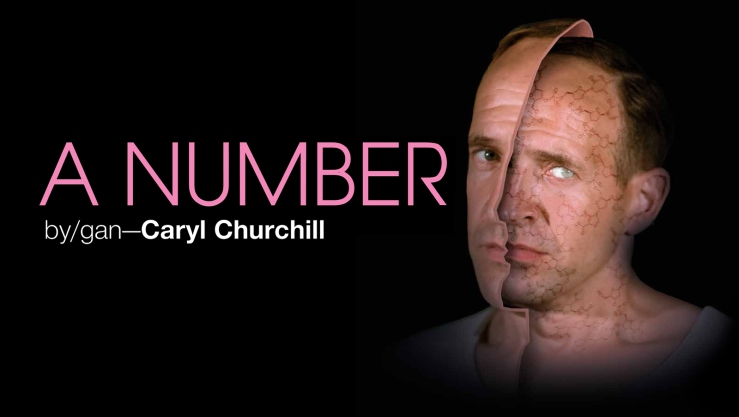Original review: The Reviews Hub
More pertinent, more perceptive, more powerful than ever
Caryl Churchill’s play about cloning is more pertinent, more perceptive, and more powerful than ever, and it has little to do with the technical practicalities of cloning now, almost twenty years after its premiere. Actually, A Number never had much to do with cloning at all, but connection: of father to son, nature to nurture, and individual to… vegetable. If we really have thirty percent the same genes as a lettuce, what makes us who we are?
A one-acter for two actors, the set up is deceptively simple: a son, after discovering he’s a clone, confronts his father, Salter, and the consequences unfold in a fraught, fast-paced dialogue. In the intimacy of The Other Room, the tensions play out like a tennis match in traverse: his sons are serving for the set, for the answers, and their words are fierce rallies that fly back and forth between them and force Salter to the baseline, and to his absolute limit. Once he’s on the back foot, we watch, waiting for a verbal ball to bounce back, but he faults: lines are unfinished, interfered with, faded out, and the answers never come. Now, on a sparse set that forces father and son to face each other, it’s Salter that’s, literally, in the spotlight; Salter, not his son, is the specimen.
Brendan Charleson begins bold and balanced in his armchair, but from one scene to another, he changes as much as his multi-rolling son. After asking if he was conceived in vitro, Stevie Raine’s cloned son treats Charleson with a reverence usually reserved for a servant and his king, kneeling and touching his hand as if a physical connection to his father could bring him closer to the truth. If Raine’s doppelganger is agitated but aggrieved, his original son is agitated and aggressive, draining all the light as he stands in the doorway and casting, with the aid of Joe Fletcher’s fine lighting design, a shadow over his father, with Charleson growing evermore uncomfortable at being charged in his own court.
Churchill’s play closes with Salter, who shines his shoes and purchases shortbread for the occasion, coming face to face with one of ‘the number’; another son he never knew he had. Content with his life as a clone, Raine’s ease in the final scene is so far from the other sons’ frustration that the effect is uncanny, and the questions it asks about identity, about individuality, makes the experience as unsettling for us as it is for Salter, proving the expert power and perceptiveness of this exceptional play.

